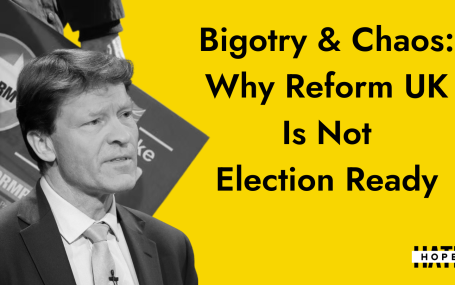HOPE not hate uses cookies to collect information and give you a more personalised experience on our site. You can find more information in our privacy policy. To agree to this, please click accept.
It’s always better to be safe than sorry, and so here are some tips for staying safe while working in communities. These are some basic guidelines for online and offline safety.
Participating in social media (e.g. Twitter, Facebook, Instagram) is a fast and easy way to share information and experiences with friends, families and online communities. It enables us to connect with others who share our interests, and plays an increasingly important part in our everyday lives. However it is important that, when we use social media, we do so responsibly.
Alongside the benefits of social media for campaigners, by the very nature of your work, there are particular significant risks to your safety and security that can be managed if you are aware of the risks and act appropriately online.
This guidance offers help to make sure that your online activity, whether in a personal or professional capacity, does not conflict with your professional role keeping you and your colleagues safe.
To avoid the threat of hacking, we suggest you use a diverse set of passwords, and ideally a password vault of some kind to store them. We also recommend using 2 Factor Authentication to log into social media accounts.
Information placed on the internet or social media could potentially end up in the public domain and be seen or used by someone it was not intended for, even if it was intended to be ‘private’ or is on a closed profile or group. It is likely that any information placed on the internet or social media will be considered to be a public disclosure.
The following are useful prompts for ensuring that your social media use is safe:
We recommend turning off your location settings when you are posting to social media. In particular, if you post regularly from the same place (home, office, commute etc), it can help someone to work out your daily patterns or where you live and work.
You should always be aware of the risk that befriending others can bring and the difficult position this can put you in. While you may believe your Facebook settings are private, more often than not hundreds of people can see what you have posted.
Your privacy settings do not guarantee that anything you post online will remain private. For example, a Facebook “friend” may pass your comments on.
Before joining a “group” or affiliating yourself with other organisations, campaigns or individuals, check that its views are appropriate for you in your role and are not incompatible with the values of your organisation.
Also it is important to understand that liking or retweeting posts of organisations or individuals isn’t always appropriate. Be careful about what you support online and how appropriate it is to pass on to others.
Using anonymous accounts is not appropriate. Being honest and open is important to your integrity in the community. Following anonymous accounts and sharing comments can be risky too. Think before you support or interact with anonymous users.
If you get ‘trolled’ we would not advise engaging with the troll. If you respond, it gives them the oxygen they seek, and they will just come back for more. Other potential trolls will spot a ‘vulnerable’ target, and join the fray.
On Twitter, we would recommend muting a troll, and on Facebook, a simple ‘block;’ is the best way to cope. If you get trolled with something which constitutes hate or incitement, you should report it to the police, to the platform it is posted on, and to any relevant reporting groups (see our hate crime guide). We would suggest taking a screenshot, which includes as much information as possible, for example account posted from and date posted, and then blocking or hiding content. On Facebook, you can hide comments without deleting them, allowing further action if necessary.
You may need to do a risk assessment on certain areas that you canvas in, or events that you run. Depending on the level of risk, take precautions by keeping the sharing of details of exact locations, meeting points etc. to a practical minimum.
Do not announce where your event is on social media or post photos from an event until after you and all other staff and volunteers have left the area. When out and about, have a fully charged mobile phone with you, and keep it on your person, not in a handbag or rucksack. Make sure your location settings are turned off if you are accessing social media while running events.
When using a venue, check the room where you set up, and work out a plan for how you and attendees will be able to leave safely should that be necessary. Know how you will leave and go home, and the route to the station/car park/taxi rank etc.
If you are out and about raising support for your campaign it is a good idea to have a ‘buddy’. You should be routinely sharing details of where you will be, and who you will be with, if you are expecting to be out attending meetings, events etc. other than your normal pattern. Let your buddy know what time your meeting or event is likely to end, and text them to say you are home safe. If your buddy does not contact you to say they are home when you expect them to, and you cannot get hold of them, you should have the contact details of who she/he would like you to contact to raise the alarm.
Remember, these types of incident happen very rarely, and by adopting a few sensible steps, we can minimise the risk and the impact.

HOPE not hate reveals ANOTHER shameful Reform UK candidate – and lifts the lid on the party’s chaotic selection process UPDATE: Reform UK has DROPPED…